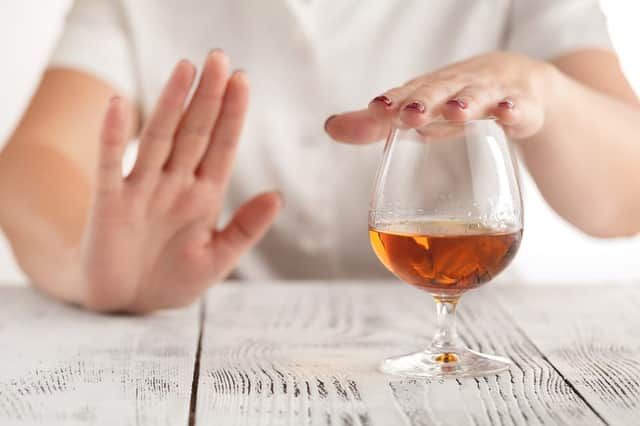Drinking alcohol soon after receiving a Covid vaccine could stop it from working properly


Drinking alcohol should be avoided for three days after getting the Covid vaccine, according to a Russian scientist.
It is thought that alcohol could hinder the body’s ability to respond to the jab, meaning it could affect its ability to fight back against Covid-19.
Not official advice in the UK
Advertisement
Hide AdAdvertisement
Hide AdThe advice against not drinking alcohol comes from a leading Russian scientist who was involved in the development of the Sputnik V vaccine.
Dr Alexander Gintsburg, head of the Gamaleya National Center of Epidemiology and Microbiology in Moscow, has warned that avoiding alcohol is “strongly” advised against after receiving any of the Covid-19 vaccines.
Officials in Russia have asked citizens not to drink alcohol if they want to receive an injection, with Dr Gintsburg telling New Scientist, “We strongly recommend refraining from alcohol for three days after each injection.”
However, health officials in the UK have not yet made any reference to keeping alcohol consumption to a minimum in order to receive the jab.
‘Reasonable limitation’
Advertisement
Hide AdDr Gintsburh has suggested a “reasonable limitation” on alcohol rather than a complete ban, but warned that binge drinking is likely to have a negative effect on immunity.
Advertisement
Hide AdHe claimed that heavy alcohol “suppresses antibodies,” which help to attack the virus, and this would be true not only for the Russian developed vaccine Sputnik V, but “also for any other vaccine.”
He said, “It is important to understand that excessive alcohol consumption can significantly reduce immunity and therefore reduce the effectiveness of vaccination or even make it meaningless."
Both the World Health Organisation (WHO) and the NHS say that long-term alcohol use can impact immune activity, with large quantities making the immune system weaker.
Advertisement
Hide AdNHS Inform says, “Choosing to cut back on how much you drink may help reduce related health risks and complications linked to coronavirus.
“Alcohol can reduce the immune system’s ability to fight off infectious diseases and have an impact on the health of your heart and lungs.”
Advertisement
Hide AdHowever, the extent to which alcohol consumption could impact a Covid infection is still unconfirmed, as research into this has not yet been conducted.
Paul Klenerman at the University of Oxford said there was no evidence to support going teetotal before having the Covid jab.
Advertisement
Hide AdSpeaking to The Sun, he said, “There’s no doubt that chronic excess alcohol has a significant impact on many aspects of immunity.
“What isn’t clear is whether just a small amount would have any significant effect in [real-life settings]. So it is plausible and you could simply be very cautious and say avoid it. Different countries might end up giving different guidance.”
Pfizer has said that there is no warning concerning alcohol consumption given to those receiving its vaccine, developed with BioNTech.